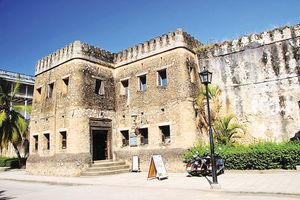Analysts brainstorm on low voter turnout in by-elections

What you need to know:
They said on Wednesday low civic education among Tanzanians was another factor, noting that the National Electoral Commission (NEC) was supposed to increase investment in the area.
Dar es Salaam. Political commentators and analysts have shed light on what they see as diminished voter inspiration pointing out that reasons for holding by-elections, country’s legal framework and political atmosphere as possible causes for voter apathy during last Saturday’s polls in Kinondoni and Siha constituencies.
They said on Wednesday low civic education among Tanzanians was another factor, noting that the National Electoral Commission (NEC) was supposed to increase investment in the area.
Political commentators were responding to The Citizen’s concern that sought to establish causes for low turnout in the just concluded parliamentary by-elections.
Siha district executive director Valerian Juwal said when announcing the February 17, by-election results that 32,277 voters equivalent to 58.35 per cent cast their ballots as compared to 55,313 registered voters.
The turnout was less by almost 9,000 when compared to 41,330 total votes collected by Dr Godwin Mollel (Chadema) and Aggrey Mwanri (CCM) when they contested in the election. They collected 22,746 votes and 18,584 votes respectively.
For his part, the Kinondoni district executive director, who doubles as the returning officer, Mr Aron Kagurumujuli, said 45,454 voters, which is equivalent to 17.2 per cent of total registered voters in the constituency, voted last Saturday. A total of 264,055 voters had registered.
By comparison, a total of 136,301 votes (about 51.2 per cent) were collected by Mr Maulid Mtulia (then a CUF candidate) and Mr Idd Azan (CCM) collectively; whereby the former had garnered a total of 70,337 votes and the latter 65,964 votes.
Speaking to The Citizen, a University of Dar es Salaam (UDSM) political science senior lecturer, Prof Bakari Mohamed, said normally by-elections lacked motivation as compared to the General Election.
According to him, people’s expectations were higher during the General Election when people make the decision on their next president, legislator and councillor as compared to by-elections when a single representative is to be elected.
“But, what led to the so called by-elections is another factor. It seems they were discouraged with the resignation of the previous lawmakers, who also turned to be candidates under the flagships of other political parties,” he observed.
He said the country still had a lot to do to help the people grasp civic education. He noted that a lot has to be done by NEC in the awareness area, especially the righ to vote and the importance to participate in such a decision.
“Also, political parties need to reorganise themselves to ensure the youth turn up for voting because observation have shown that majority of voters were jobless, mostly women and the elderly,” he said.
His observations were reiterated by his UDSM counterpart, Dr Damian Shumbusho, who suggested that voters were not well informed on the power of their votes for their own development.
“Political parties should avoid discouraging their voters by serving them diligently when elected in various positions,” he said.
For his part, CUF (Prof Ibrahim Lipumba’s faction) director for Information, Publicity and Communication, Mr Abdul Kambaya, attributed the election apathy to poor legal frameworks and country’s election background.
“This is because sometimes winners are not declared and those announced are not the ones who won. This is where the opposition have been increasing demand for free and independent electoral commission,” he alleged.
Reached for comments yesterday, NEC deputy secretary of Elections Management, Ms Irene Kadushi, agreed with some reasons and refuted the others.
“It is a usual trend for by-elections as compared to General Election. However, I strongly agree that parties’ decisions to nominate defectors may have caused voter apathy,” she said in a telephone interview.
She added, “We have improved the level of civil education which was previously hindered by inadequate funding and that nowadays it is a progressive process. Also, the freedom and independence of the Electoral body isn’t interfered by anyone including the government.”
However, she said the Commission’s structure prompted for citizen’s perception that the ruling CCM is favoured.
“NEC intends to establish zonal offices and recruit its employees to supervise elections. But, people’s trust to the Commission need to increase because even in neighbouring countries where electoral commissions are considered independent than ours, their credibility have been questioned,” she said.



